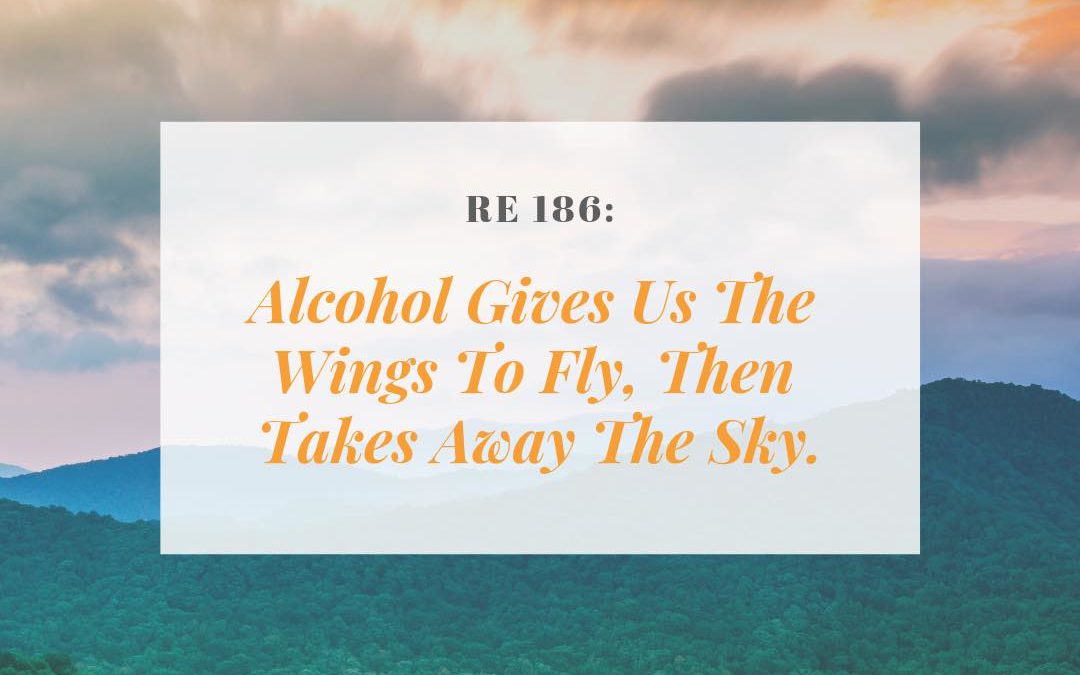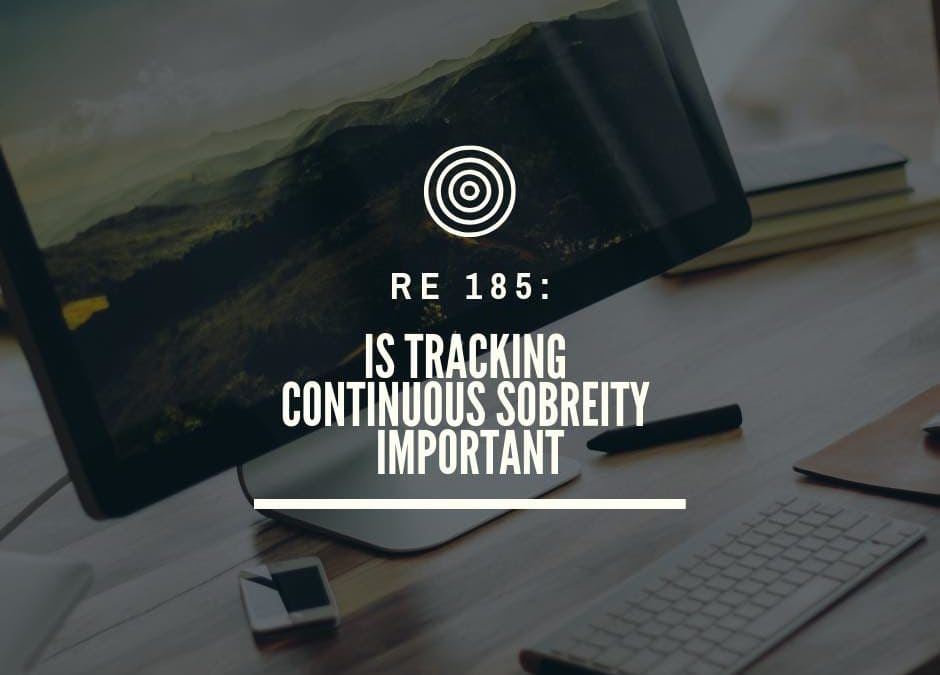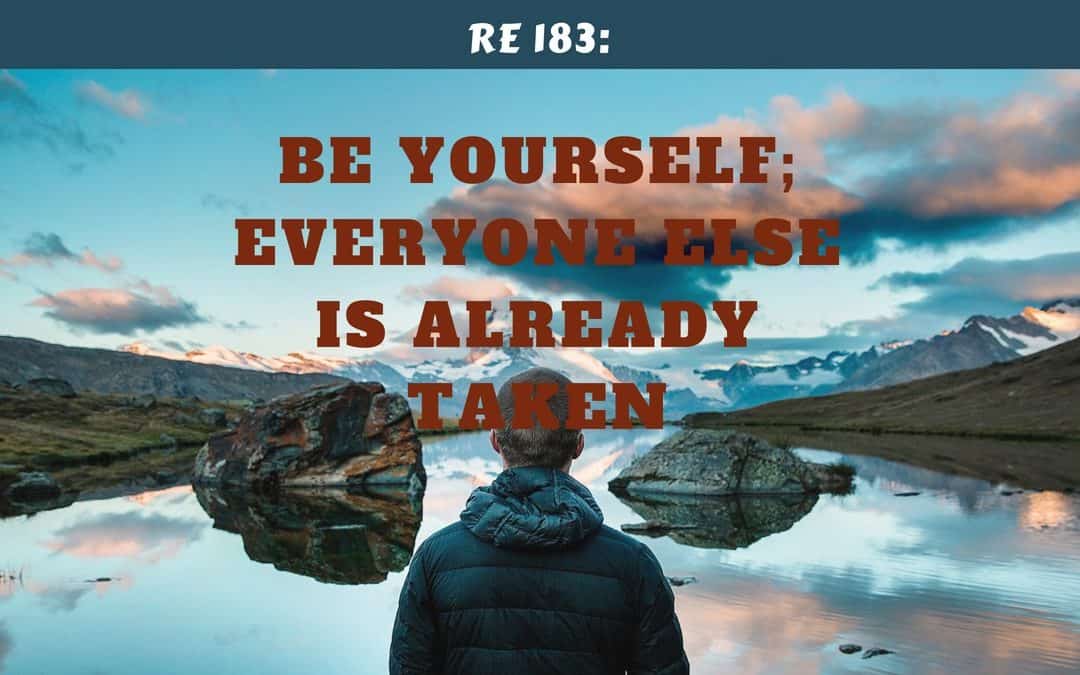
by Paul Churchill | Sep 10, 2018 | Podcast
Podcast: Play in new window | Download
Subscribe to the Recovery Elevator Podcast Apple Podcasts | | More
Angie, with 146 days since her last drink, shares her story…
“Alcohol gave me the wings to fly, then took away the sky”
SHOW NOTES
[5:30] Paul Introduces Angie.
Angie is 36 years old, lives in Atlanta, GA. She has been sober for 146 days and is the proud owner of 2 dogs. She loves live music, the theater and the movies. She enjoys cooking. She now enjoys her own company.
[7:06] Give us some background about your drinking habits.
She never drank in high school or college. She started when she was in her early 20’s. Drinking gave her confidence. After a divorce in 2012, she attempted suicide and her drinking also ramped up. She was having between 6-10 drinks a night. She felt like she was barely surviving. Her move to Atlanta did not cure her drinking, but it helped her to realize she had a problem.
[10:25] Did you ever have a rock bottom moment?
She was sick and tired of being sick and tired. She never really wanted to stop, but she had a rock bottom moment when she drank before work. She was blacked out drunk and spoke with two of her bosses. She realized that she didn’t have it under control. She would attempt sobriety and then crash into relapse. She associated alcohol with love. She wrote a goodbye letter to alcohol.
[16:05] What did it feel like to formally say goodbye to alcohol?
She felt empowered. She spent a lot of time wishing things in her life would be different. She realized that she had all the tools she needed within her. Her life got a lot easier. She changed her relationship with her internal dialogue.
[18:15] How did you quit?
She wanted to change but wasn’t really searching for community. She struggled with sobriety on her own. She relapsed and thought it was the end of the world. She finally realized that she can’t do it alone she began to connect with people. She went to AA. She went to Smart Recovery. She organized a sober meetup. Letting people in to help her has been her 146 days.
[21:16] Talk to us about why you were unable to attend the Dallas meetup.
She relapsed right before and felt like she couldn’t go. She felt like she wasn’t worth it. She kept drinking for two more months.
[23:02] Talk to us about your relationship to self-loathing.
She has often struggled with self-loathing. She has always felt like she wasn’t good enough. She experienced a lot of self-hatred after relapse. She realized she wasn’t going to change or grow. She realized drinking was a symptom. She drank because she hated herself. She realized that she had to love herself in that moment. She had a new story to write which looked nothing like her past. She has started to meditate. She decided she needed to go to therapy and talk it out with people. She wanted the outside voices.
[27:31] Walk us through a day in your recovery. What tools are you using?
She meditates first thing in the morning. She focuses on taking care of her dogs. She journals and tries to take it one day at a time. She breaks it down further to one thing at a time. Her life feels a lot slower and more peaceful.
[30:10] What’s your proudest moment in sobriety?
She went to see a musical recently and didn’t drink. She turned down a drink after a friend pressured her. She went to the bathroom, struggled, cried, but ended up texting her other sober friend to get through it.
[31:25] What are your thoughts on relapse?
Anything we do in life, we fail at. Success is built on failure. Failure aka relapse is a part of life. The less you beat yourself up, the better you’ll be.
[32:54] Rapid Fire Round
What was your worst memory from drinking?
Her failed suicide attempt. She found out her husband was cheating on her and she tried to take her life.
Did you ever have an “oh-shit” moment?
Going to her part time job completely drunk with no memory of the conversation.
What’s your plan moving forward?
Taking it one day at a time. Try to not isolate herself. Maintain sober relationships
What’s your favorite resource in recovery?
Café RE.
What’s the best advice you’ve ever received (on sobriety)?
I’m worth it. It’s worth it to do hard things and she’s worth it being sober.
What parting piece of guidance can you give listeners who are in recovery or thinking about quitting drinking?
Just give it a shot. Give it 90 days and see how you feel. If the idea of 90 days feels overwhelming, that’s just another reason to give it a try. Don’t listen to the shitty voice in your head. Reach out to a community. People understand what you’re going through.
You might be an alcoholic if…
“You’re an avid Office fan, but you have to skip the episode with the intervention because it hits too close to home.”
Resources mentioned in this episode:
Connect with Cafe RE- Use the promo code Elevator for your first month free
Sobriety Tracker iTunes
Sobriety Tracker Android
Sober Selfies! – Send your Sober Selfie and your Success Story to info@recoveryelevator.com
“We took the elevator down, we gotta take the stairs back up, we can do this!”

by Paul Churchill | Sep 3, 2018 | Podcast
Podcast: Play in new window | Download
Subscribe to the Recovery Elevator Podcast Apple Podcasts | | More
Jennifer, with 568 days since her last drink, shares her story…
Tracking your sobriety time – Do the numbers matter?
To begin with, know that it’s not a competition. We’re going for quality over quantity! We quit alcohol because we want to improve our lives. The end goal isn’t in the numbers, but in the increase in one’s quality of life. Removing alcohol was the first step in a journey of getting to know ourselves, finding out what we really want from life and making the best of each and every day. The real tracker is how you feel about who you are, where you’re going and what is meaningful in your life.
SHOW NOTES
[9:52] Paul Introduces Jennifer.
Jennifer is 36 years old from Cleveland, OH. She has 3 cats and runs a business walking dogs.
[11:52] Describe to us your background with drinking.
She started drinking at 15. She always thought it was normal to binge drink. She thought it was a part of youth. Her drinking held pretty steady until her mid 30’s. She realized that we live in a drinking culture. She has often struggled with codependency. She never thought she was the problem. She always thought it was other people.
[16:29] Where was your lightbulb moment indicating you had to stop?
4 months before this recent attempt, she appeared on a podcast about addiction and codependency. She grew up with addiction in her family. She had to be the parent as a child. She had a negative image in her head of what an addict was, and because she wasn’t close to that image, she wasn’t able to see the progression of her own addiction. She began to realize that addiction has many forms by listening to other people’s stories and it gave her permission to acknowledge her own addictive behavior.
[21:52] How were you able to finally make the change when the time came?
She was exhausted by the idea of continuing to drink. Her own drinking behavior started to wear her out and she became tired and resentful. She wanted to be able to enjoy activities without alcohol. She went through a breakup and had to seek out grounding. Her hangovers were getting darker and more difficult. She began to fear the impact it was having on her health. She couldn’t handle the shame and embarrassment. She found Recovery Elevator and it helped give her the confidence to try and quit. She realized that she’s not alone. She didn’t really connect with AA when she tried it. Her first year of sobriety she kind of transferred her alcoholism to workaholism. She didn’t realize there were options other than AA. She didn’t realize how much she needed people until she started talking to other people about being sober.
[31:30] How did you manage your early recovery?
She became hyper focused on her work. She tried to avoid social situations so she could avoid alcohol. She lost some friends.
[35:05] What are you working on now in sobriety?
She is working on maintenance. She wants to achieve big things in life but she’s trying to keep simple and to focus on taking care of herself and relaxing. She’s learning how to be kind to herself. She’s working on being able to regulate her emotional life. She realized that she used to be too focused on what others thought about her. She feels transformed on the inside, even though there is little change on the outside.
[41:00] What is the “Shift Doughnut”?
She used to work at the doughnut shop in Cleveland. She would just get a doughnut after her shift. She called them “shift doughnuts” but her coworker helped her realize that she was just stealing doughnuts.
[42:10] Rapid Fire Round
- What was your worst memory from drinking?Shortly after her 30th birthday, she went home with a lover and was raped after she blacked out. She tried to ignore it for a long time but in sobriety it bubbles up to the surface.
- Did you ever have an “oh-shit” moment?She invented the Triple Pipe Classic, which is when you lose control of all bodily functions.
- What’s your plan moving forward?Learning to like herself, love herself, deepening her meditation practice. Learning to go slower and relax. She’s looking forward to the Café RE trip to Peru. She wants to travel more and do more things with her life.
- What’s your favorite resource in recovery?An app called Marco Polo. It’s like having a little therapist in your pocket. She feels like she is able to see thought patterns that she missed before. It’s easy to connect with people.
- What’s the best advice you’ve ever received (on sobriety)?Early in sobriety, someone said “You know you can start your day over at any time..”
- What parting piece of guidance can you give listeners who are in recovery or thinking about quitting drinking?Don’t compare yourself out of recovery. Your recovery is your own. The only opinion of you that matters is your own. Alcoholism is a symptom of things not going well. Be grateful for the opportunity to sort yourself out. Also, be open to the idea that you may not know yourself like you think. What if you’re wrong about yourself? The story tape reel repeating in your head about yourself might be completely wrong. Be open to a new and better and you.
- You might be an alcoholic if…“you post a video on your social media channels of you home alone, drunk, dancing to Lady Gaga and juggling cigarettes.” Or “if you complete a Triple Pipe Classic”
Resources mentioned in this episode:
The Subtle Art of Not Giving A Fuck – A book by Mark Manson
Marco Polo (Android) (iTunes) – An video chat app
Connect with Cafe RE– Use the promo code OPPORTUNITY for your first month free
Sobriety Tracker iTunes
Sobriety Tracker Android
Sober Selfies! – Send your Sober Selfie and your Success Story to info@recoveryelevator.com
“We took the elevator down, we gotta take the stairs back up, we can do this!”

by Paul Churchill | Aug 27, 2018 | Podcast
Podcast: Play in new window | Download
Subscribe to the Recovery Elevator Podcast Apple Podcasts | | More
Paul, with 28 days since his last drink, shares his story…
The article mentioned in the episode introduction: Science Increasingly Makes the Case for God
SHOW NOTES
[10:57] Paul Introduces… Paul.
Paul is from St. Paul, Minnessota. He’s 67 years old, retired. He is married with 2 kids, and 2 grandchildren. He hosts an internet radio show. He enjoys cooking and films.
[13:18] Describe your drinking history.
In his 20s, he feels that he was a normal drinker. Sometimes to excess with a bad hangover, but usually a moderate amount. During his first marriage, his wife didn’t drink as much. He started to experiment with stronger mixed drinks. His second wife died of breast cancer, and he was a caretaker for her. He used drinking to deal with the pain. He married again a third time and didn’t feel compelled to drink too much. It started to creep back in. His office culture encouraged drinking after work. He gradually switched from beer to whiskey. He tried to moderate but not drinking during the day. He began concealing his drinking from his wife. He’s tried to quit a few times in the past few years. His habits got progressively worse.
[19:10] What was different about this last attempt to quit?
After a doctor’s appointment, he was shocked at his high blood pressure. He kept drinking. He started to suffer from diabetes. His doctor said it was okay to drink a little bit each day. He used that as an excuse to ramp back up. He had quit before with determination, but this time it felt different. He is exploring the painful periods of his past, and trying to find out the connection to his drinking. He thinks it has something to do with being verbally abused as a child. The alcohol has helped him relax. He thinks his anxiety is wearing off gradually.
[28:00] Describe your present relationship with anxiety.
He feels as if something bad is going to happen, irrationally. He feels an unease, an inability to relax. A few months ago, he was going to go on a trip to Ireland. He had a lot of anxiety about the trip and it worried him. He just started drinking again to manage the anxiety.
[32:10] How did you achieve 28 days this time around?
He did some research. He found an article by Roger Ebert about his struggle. He did more research and found Cafe RE. He’s learning new ways to deal with his emotions that don’t involve drinking.
[34:53] What’s on your bucket list in sobriety?
He would like to travel. He wants to learn how to ride horses. He wants to take some guitar lessons. He wants to put more work into his radio show. He plays vintage and eclectic music.
[38:32] Rapid Fire Round
- What was your worst memory from drinking?
He was surprised to have blackouts. He found it unsettling and scary.
- Did you ever have an “oh-shit” moment?
His wife mentioned something he said and he didn’t remember saying it.
- What’s your plan moving forward?He wants to follow up with smart recovery and AA. He will continue to journal. Continue to engage with Cafe RE.
- What’s your favorite resource in recovery?
- What’s the best advice you’ve ever received (on sobriety)?
“Today is the best day to quit.”
- What parting piece of guidance can you give listeners who are in recovery or thinking about quitting drinking?
Share it with someone. Make yourself accountable. He shared with his wife and his kids and it’s made a difference. Be kind to yourself. Don’t believe what other people tell you about yourself unless it’s good.
- You might be an alcoholic if…
“..if you’re researching whether or not you’re and alcoholic.”
Resources mentioned in this episode:
Science increasingly makes the case for God – An article in the Wall Street Journal
Connect with Cafe RE– Use the promo code Elevator for your first month free
Sobriety Tracker iTunes
Sobriety Tracker Android
Sober Selfies! – Send your Sober Selfie and your Success Story to info@recoveryelevator.com
“We took the elevator down, we gotta take the stairs back up, we can do this!”

by Paul Churchill | Aug 27, 2018 | Podcast
Podcast: Play in new window | Download
Subscribe to the Recovery Elevator Podcast Apple Podcasts | | More
Paul, with 28 days since his last drink, shares his story…
The article mentioned in the episode introduction: Science Increasingly Makes the Case for God – Wall Street Journal
SHOW NOTES
[10:57] Paul Introduces… Paul.
Paul is from St. Paul, Minnessota. He’s 67 years old, retired. He is married with 2 kids, and 2 grandchildren. He hosts an internet radio show. He enjoys cooking and films.
[13:18] Describe your drinking history.
In his 20s, he feels that he was a normal drinker. Sometimes to excess with a bad hangover, but usually a moderate amount. During his first marriage, his wife didn’t drink as much. He started to experiment with stronger mixed drinks. His second wife died of breast cancer, and he was a caretaker for her. He used drinking to deal with the pain. He married again a third time and didn’t feel compelled to drink too much. It started to creep back in. His office culture encouraged drinking after work. He gradually switched from beer to whiskey. He tried to moderate but not drinking during the day. He began concealing his drinking from his wife. He’s tried to quit a few times in the past few years. His habits got progressively worse.
[19:10] What was different about this last attempt to quit?
After a doctor’s appointment, he was shocked at his high blood pressure. He kept drinking. He started to suffer from diabetes. His doctor said it was okay to drink a little bit each day. He used that as an excuse to ramp back up. He had quit before with determination, but this time it felt different. He is exploring the painful periods of his past, and trying to find out the connection to his drinking. He thinks it has something to do with being verbally abused as a child. The alcohol has helped him relax. He thinks his anxiety is wearing off gradually.
[28:00] Describe your present relationship with anxiety.
He feels as if something bad is going to happen, irrationally. He feels an unease, an inability to relax. A few months ago, he was going to go on a trip to Ireland. He had a lot of anxiety about the trip and it worried him. He just started drinking again to manage the anxiety.
[32:10] How did you achieve 28 days this time around?
He did some research. He found an article by Roger Ebert about his struggle. He did more research and found Cafe RE. He’s learning new ways to deal with his emotions that don’t involve drinking.
[34:53] What’s on your bucket list in sobriety?
He would like to travel. He wants to learn how to ride horses. He wants to take some guitar lessons. He wants to put more work into his radio show. He plays vintage and eclectic music.
[38:32] Rapid Fire Round
- What was your worst memory from drinking?
He was surprised to have blackouts. He found it unsettling and scary.
- Did you ever have an “oh-shit” moment?
His wife mentioned something he said and he didn’t remember saying it.
- What’s your plan moving forward?He wants to follow up with smart recovery and AA. He will continue to journal. Continue to engage with Cafe RE.
- What’s your favorite resource in recovery?
- What’s the best advice you’ve ever received (on sobriety)?
“Today is the best day to quit.”
- What parting piece of guidance can you give listeners who are in recovery or thinking about quitting drinking?
Share it with someone. Make yourself accountable. He shared with his wife and his kids and it’s made a difference. Be kind to yourself. Don’t believe what other people tell you about yourself unless it’s good.
- You might be an alcoholic if…
“..if you’re researching whether or not you’re and alcoholic.”
Resources mentioned in this episode:
Science increasingly makes the case for God – An article in the Wall Street Journal
Connect with Cafe RE– Use the promo code Elevator for your first month free
Sobriety Tracker iTunes
Sobriety Tracker Android
Sober Selfies! – Send your Sober Selfie and your Success Story to info@recoveryelevator.com
“We took the elevator down, we gotta take the stairs back up, we can do this!”

by Paul Churchill | Aug 20, 2018 | Podcast
Jason, with 178 days since his last drink, shares his story…
“What lies behind us and what lies before us are tiny matters compared to what lies within us.” – Ralph Waldo Emerson
“Success is the sum of small efforts, repeated day in and day out.” – Robert Collier
“It’s difficult to believe in yourself because the idea of self is an artificial construction. You are, in fact, part of the glorious oneness of the universe. Everything beautiful in the world is within you.” – Russell Brand
“When everything seems to be going against you, remember that the airplane takes off against the wind, not with it.” – Henry Ford
“If we are facing in the right direction, all we have to do is keep on walking.” – Zen proverb
“It is not easy to find happiness in ourselves, and it is not possible to find it elsewhere.” – Agnes Repplier
“If things go wrong, don’t go with them.” – Roger Babson
“Recovery is not for people who need it, but for people who want it” – Anonymous
“When the past calls, let it go to voicemail. Believe me, it has nothing new to say.” – Unknown
“The greatest mistake you can make in life is to continually be afraid you will make one.” – Elbert Hubbard
“If you can quit for a day, you can quit for a lifetime.” – Benjamin Alire Sáenz
“Be yourself; everyone else is already taken.” – Oscar Wilde
“I have learned over the years that when one’s mind is made up, this diminishes fear.” – Rosa Parks
“When was the last time you woke up and wished you’d had just one more drink the night before? I have never regretted not drinking. Say this to yourself, and you’ll get through anything.” – Meredith Bell
“The Pain you feel today is the strength you feel tomorrow” – Anonymous
“The best way out is always through.” – Robert Frost
“Your heart is leading you in the right direction. Quiet the mind and follow. “ – Paul Churchill
“Every strike brings me closer to the next home run.” – Babe Ruth
“Happiness is where we find it, but rarely where we seek it.” – J. Petit Senn
“Man never made any material as resilient as the human spirit.” – Bernard Williams
“What is addiction, really? It is a sign, a signal, a symptom of distress. It is a language that tells us about a plight that must be understood.” – Alice Miller
SHOW NOTES
[11:50] Paul Introduces Jason.
Jason is 46-year-old social worker from Connecticut He’s married with two children. He likes the outdoors, soccer, kayaking, fishing,and hiking.
[14:00] Give listeners an idea of your drinking background.
He started drinking in high school. It escalated when he went into the navy. After the navy, his drinking settled into a regular pattern which slowly escalated as well. In mid 30’s his drinking started to feel like it was getting to be a problem. He had a previous 5 year period of sobriety. He was trying to be health conscious. He has heart disease in his family. He tried to stay on top of it. Around 38, his physical wasn’t so great. He was referred to a cardiologist. He thought cutting alcohol out would improve his health. He stopped on NYE of 2010. He felt a lot better so he kept going. He did not work a program. He was hung up on the stigma of being an alcoholic. He thought that after 5 years he didn’t have a problem, and he was feeling healthy and he thought that maybe he could be a normal drinker again. After relapse, he kept it under control for a while, but shortly thereafter it started escalating again quickly and he began to fall back into the same patterns. He had a difficult summer, drinking most days, and he realized that he was a better person during his stint in sobriety and decided to go back to being sober.
[27:38] Did you find it difficult to stop the second time?
He could see how bad it would get if he didn’t stop. He was hiding drinks, and every week seemed to get worse. He knew he was worse than he had been previously. He thought that his previous bout of sobriety meant he could do it again. He just had to get back to sobriety. He feels our society surrounds you with pro-drinking messages.
[32:07] How were you able to quit this time around?
The first few weeks were difficult, more difficult than he remembered from before. This time it felt more ingrained into his routine, making it more difficult. This time he is consuming more sobriety media and it helps him keep his mind right.
[34:00] Do you think you are addressing more dimensions of sobriety this time?
Last time he was too focused on the physical part. This time he’s addressing the mental and spiritual sides of his life. He’s building a meditation practice and doing yoga. He he has more tools this time than before. He’s trying not to think about the time line as much. He’s trying to stay in the present and focus on what’s right in front of him.
[36:37] What’s something that you’ve learned about yourself in sobriety?
Honest really helps. Also, there’s nothing to be ashamed of. Dependence happens to some people quicker than others, but it’s nothing to be ashamed of. He’s taking things more gradually and slowly.
[37:22] Have you experienced any cravings?
Definitely, in the first few months. He just tries to ride it out. They’re only about 20 minutes long. He tries to distract himself realizing that they will pass.
[38:56] If you could go back and change anything about your getting sober, what would it be?
He thinks he could have talked to and with more people.
[39:20] What’s on your bucket list in sobriety?
He wants to travel more, and spend more time with his kids.
[40:00] Rapid Fire Round
- What was your worst memory from drinking?
When he was in the navy, he blacked out and had to walk around ashamed.
- Did you ever have an “oh-shit” moment?
It’s a cumulative thing. His many mornings feeling terrible. Hearing about conversations he didn’t remember.
- What’s your plan moving forward?To keep taking it slowly. To focus on his meditation and yoga practice. Be open and honest with people in his sobriety.
- What’s your favorite resource in recovery?Recovery Elevator podcast. On Instagram: Drybe club.
- What’s the best advice you’ve ever received (on sobriety)?
You do not have to drink.
- What parting piece of guidance can you give listeners who are in recovery or thinking about quitting drinking?
If it’s something that’s on your mind, just do it. Reach out to people, be honest and find resources.
Resources mentioned in this episode:
Drybe Club – an Instagram page about sobriety
Connect with Cafe RE– Use the promo code Elevator for your first month free
Sobriety Tracker iTunes
Sobriety Tracker Android
Sober Selfies! – Send your Sober Selfie and your Success Story to info@recoveryelevator.com
“We took the elevator down, we gotta take the stairs back up, we can do this!”







